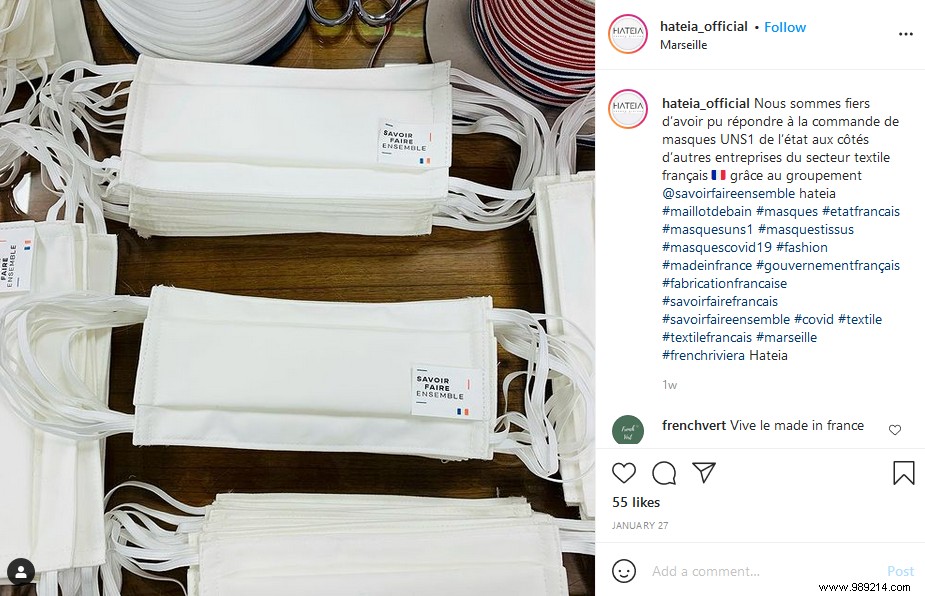For some time now, the significant risk of pollution due to the use of surgical masks has been coming back with insistence in the media. Essential to limit the spread of the SARS-CoV-2 coronavirus, these masks thus constitute a danger to the environment. In France, however, a company has just unveiled a biodegradable and even compostable surgical mask.
From the first weeks of the Covid-19 epidemic, some were already worried about the impact of massive use single-use surgical masks made of polypropylene. A year after the start of the pandemic, the figures are very worrying:humans use and throw away 129 billion surgical masks per month, or three million per minute . According to the UN, 75% of masks could end up in nature where they would take more than four hundred years to degrade while spreading microparticles polluting water and air.
Faced with this alarming observation, any initiative to reverse this trend is welcome. Hateia, a Marseille-based company, for example, has developed a biodegradable and compostable surgical mask . According to brand managers, the mask in question complies with the EN13432 standard of the European Committee for Standardization (CEN). Dating from 2002, this standard concerns any biodegradable or compostable material.

To make this mask, the company Hateia has imagined its own biopolymers :HatBiotech. In addition, the elastics of the masks are made of rubber tree (rubber tree), the packaging bags are made of recycled kraft and the ink used is vegetable (soya). However, the filter materials are the subject of an industrial secret and it is impossible to know its composition. Originally, Hateia was a company specializing in the manufacture of high-end swimsuits, especially for Miss France. Since March 2020, it has also been marketing fabric masks. However, the High Council of Public Health has recently advised against the use of these masks.
So Hateia's new surgical masks are welcome. They have also been sold for a few days to companies and available in pharmacies. Remember that this is a type 2R mask , filtering up to 98%. Thus, it can integrate the hospital environment with the exception of the operating room. In addition, the brand promises that the degradation of the mask in the environment takes only two months . This duration can vary depending on the humidity and heat and is obviously well below four hundred years in the case of conventional surgical masks.